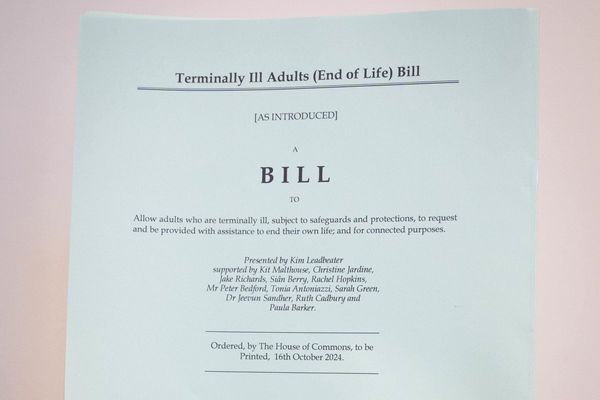
Family violence is a national crisis in Australia, with one in four women having experienced violence by an intimate partner or family member since the age of 15.
Yet in the recent federal budget, Labor did not allocate sufficient and sustainable funding towards efforts to address family violence.
The failure of successive governments to adequately fund efforts to address family violence has created a crisis within a crisis with two main consequences. First, it creates conditions where women who are experiencing family violence are not able to access essential (and potentially lifesaving) services. Second, it creates conditions where there are high rates of burnout for frontline workers who are providing these essential services.
Frontline service providers are under immense pressure to respond to the family violence crisis without adequate support from the government. Despite frontline services not being able to keep up with demand — resulting in victim-survivors being turned away — no new funding was announced in the budget for frontline family violence services.
Chronic underfunding and funding insecurity create challenges for workforce retention and worker well-being. A 2020 survey of family violence workers found that almost a third of specialist practitioners were considering leaving their jobs due to burnout. The COVID-19 pandemic greatly exacerbated burnout for workers in the sector.
“We have had to look for different ways at different times to make sure that we could continue to deliver [services] and be responsive to the needs of our clients … and also be responsive to the demands that it put on our staff,” one family violence service manager told Crikey.
“We lost some really good staff members [during COVID] and we’re still suffering from workforce shortages”.
According to Women’s Legal Services Australia, in 2024 approximately 52,000 women experiencing family violence were turned away from legal services due to funding shortages. In the budget, funding was allocated to community legal centres, but this is not specific to family violence services and does not meet demand.
Further, the 2021 Nowhere to Go report, based on pre-pandemic incidences, found approximately 7,690 women return to their partner each year because they have nowhere to go, and 9,120 women face homelessness after leaving a violent partner. While the budget redirected $1 billion towards crisis and transitional accommodation for women and children fleeing family violence, this money had already been allocated to social housing. Investment in crisis and transitional accommodation is needed, but long-term housing solutions also require urgent attention.
In addition to crisis and transitional accommodation, improving housing security in the context of family violence requires an increase in social housing stocks as well as improvements in the accessibility of private rentals for victim-survivors.
A frontline family violence worker explained to Crikey that, while the affordability of the rental market is decreasing, victim-survivors who have been approved for priority social housing sometimes have to wait for five years to be offered a place.
Muslim Women Australia CEO Hajeh Maha Abdo, who has more than 40 years of experience in family violence service delivery, highlighted the importance of long-term housing security to the agency of victim-survivors.
“If they [victim-survivors] don’t have that foundational structure of being able to come home and feel safe, then everything that we’ve done with our clients in terms of mental health and healing, it’s not going to be retained”, Abdo told Crikey.
“When we’re pouring so much money into mental health and well-being, we’ve got to do the same in providing these women with affordable, stable long-term accommodation.”
Despite the link between family violence, financial insecurity and homelessness being well established, “crisis-orientated” funding continues to be prioritised over initiatives that seek to meet the longer-term needs of victim-survivors, including long-term housing needs.
The federal government established its National Plan to Reduce Violence against Women and their Children, which set the goal of ending gender-based violence in one generation. While the annual budget allocations to address family violence have been consistently increasing since 2014, the consensus in the sector is loud and clear: the government’s current investment in the safety of women and children is inadequate to meet the goals it’s set under the national plan.
Within the context of Australia’s Federation, budgeting for public policy areas of shared national and state responsibility requires the coordination and cooperation of the federal and state governments through forums such as the national cabinet. On May 1, the national cabinet announced the federal government’s commitment to permanently establish the Leaving Violence Program as part of its efforts to address family violence, in addition to other cyber-focused initiatives. A key element of the program is that it provides up to $5,000 to support victim-survivors of intimate partner violence. This initiative has been criticised.
Family violence is a social problem that requires a whole-of-society response, from prevention to recovery. Everyone needs to recognise they are part of the problem and the solution. However, as with climate change, while everyone is responsible, not everyone holds equal responsibility. We need our leaders — who have a responsibility to fulfil the promises they made in the national plan — to act.







